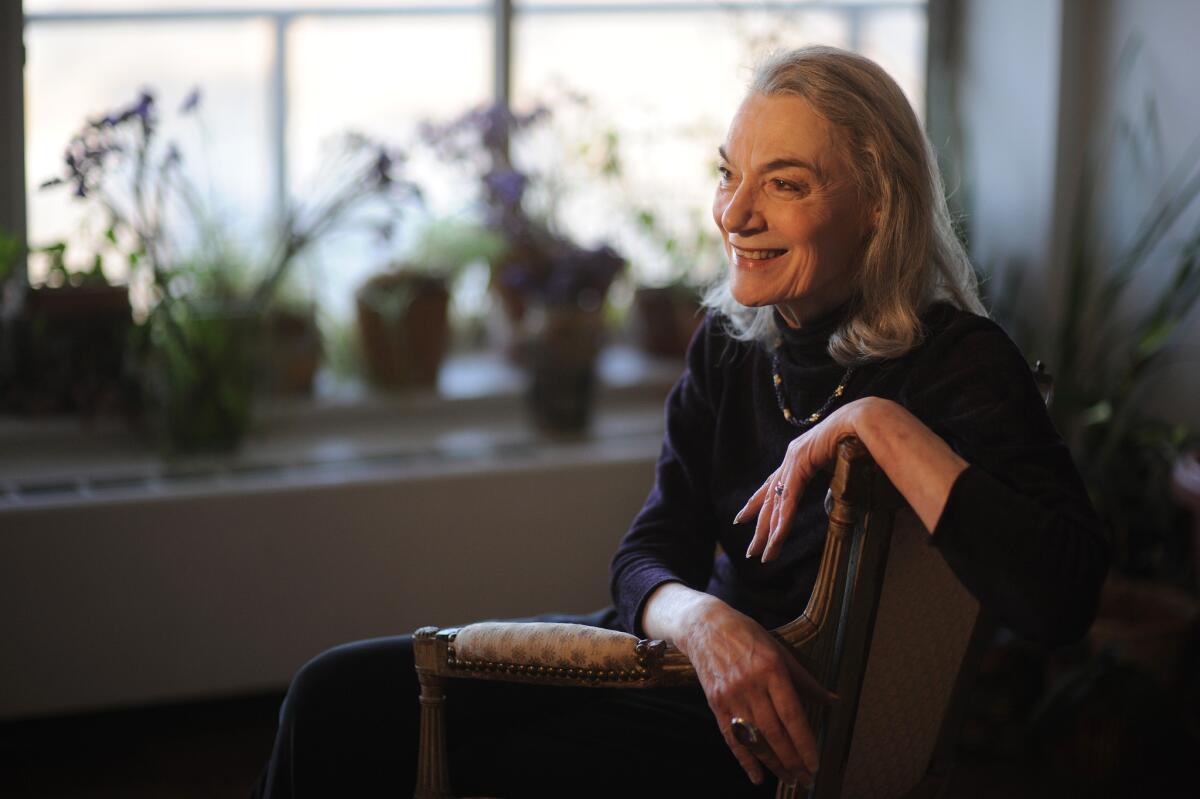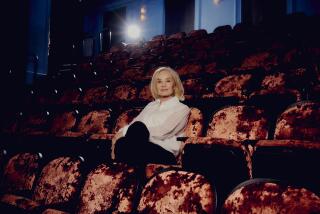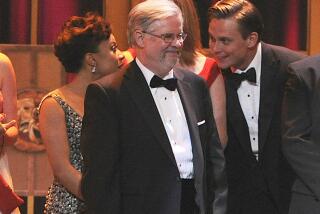Critic’s Notebook: Marian Seldes: Her life and career were a master class

If the spirit of the theater could be incarnated, it would have looked and sounded very much like Marian Seldes, the Tony Award-winning actress who died Monday after an extended illness. She was 86.
There was nothing mundane about Seldes. On stage and off, she strode and galloped rather than walked. Her gestures were intended to delight present company and those in the mezzanines of distant galaxies. Her eyebrows had the versatility of inverted commas.
Seldes’ voice — low in register, refined in manner — was one that took pride in its training. This was no ordinary vocal instrument but part of her musicianship as an actor. When Marian spoke her own words, or those of one of her beloved playwrights, she made funny things so much funnier and serious things so much more serious.
Frivolity delighted her, but she never lost sight of deeper meaning. Her values — concern for individual humanity, in sum — informed her every interaction. She treated everyone with the loving concern of a scene partner in a thrillingly moving existential comedy.
She began as a classical actress, working with Judith Anderson and Katharine Cornell on Broadway in world classics. But she had studied with Sanford Meisner at the Neighbor Playhouse and had a keen respect for the new wave of naturalism that was taking the theater by storm in mid-20th century America. Marlon Brando, Kim Stanley and Geraldine Page were as much her heroes as Anderson, Cornell and John Gielgud, who directed her in her Broadway debut, in which she played an attendant to Anderson’s Medea.
Seldes reconciled these traditions by focusing on the reality of the situation of her character. Nothing was too grand if it was grounded in belief.
“If you simply look for the truth and follow the truth in the situation, then there’s no struggle in a sense to make the audience believe,” she said in an interview in the book “Actors at Work.” “You believe it, they’ll believe it, and at the same time, you are free to move the way you move, to touch a piece of furniture or a flower or something that’s in the room, or your own clothing or the face of your partner, in a way that only you could do.”
And no one could “do” it quite like her. When she moved her arms, it was as though windmills had been conjured to mesmerize us. And when she spoke, humor could spring from the most ordinary of consonants.
Seldes won a Tony for her supporting role in Edward Albee’s “A Delicate Balance,” and her stylized form of acting was an ideal fit for his plays. She scored one of her greatest triumphs in Albee’s drama “Three Tall Women” and later had another tremendous success in his “The Play About the Baby.”
For Seldes, these works made sense even at their most artificial. She shared the playwright’s view that an artist doesn’t copy the world but invents his or her own, one with its own geography, gravity and grammar. The theater, in short, creates an alternative universe that actors make familiar through their alert and compassionate presence.
To do this properly requires a very big heart, and Seldes had one of the biggest I’ve encountered in the theater. I got to know her when she served as a judge on the Village Voice Obie Award panel in the mid-1990s. She was a tireless supporter of other theater artists, the first to rise up in applause after a virtuosic display by the Wooster Group and the only one to curtsy to the floor in a backstage visit to a veteran performer who had once again taken her breath away.
For years she taught acting at Juilliard, influencing a generation of talent with her formidable intelligence, discipline and respect for the craft — and never missing a performance during her record-long run in “Deathtrap.”
When I was writing a story on the actress Frances Conroy, I asked Seldes about her former pupil. Her remarks exemplified her generosity: “When you are in a class with a student like Frances, you almost feel hesitant to suggest things. You want to see what she will do, because what she brings is so interesting.”
When she was honored in 2010 with a Tony for lifetime achievement, it was not only in recognition of her work as a Broadway actress but also a tribute to her role as a Broadway standard-bearer.
The daughter of writer and critic Gilbert Seldes and an author herself of a lovely theater memoir, “The Bright Lights,” Seldes was a firm believer that critics were an integral part of the theater community. She referred to them once as “our teachers” — a high compliment from a woman whose entire life was a master class in how to be a theater artist.
Follow Charles McNulty on Twitter: @CharlesMcNulty
More to Read
The biggest entertainment stories
Get our big stories about Hollywood, film, television, music, arts, culture and more right in your inbox as soon as they publish.
You may occasionally receive promotional content from the Los Angeles Times.











